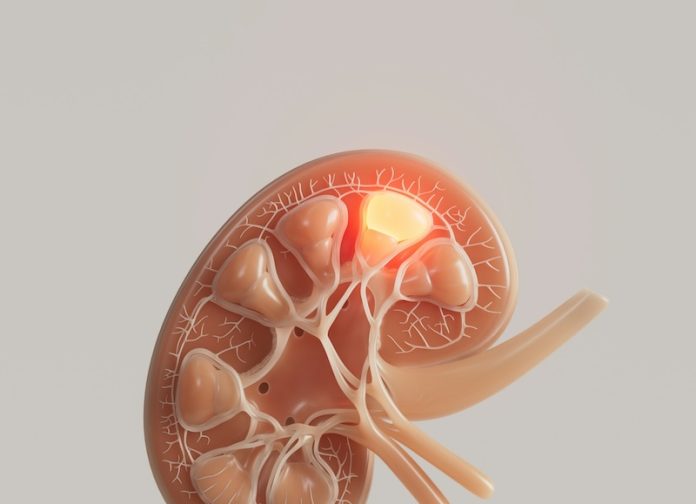
Kidney disease happens when the kidneys, which filter waste and extra fluids from the blood, become damaged and can’t do their job properly.
When kidney function gets very low, it can lead to end-stage renal disease (ESRD), where treatments like dialysis or a kidney transplant are usually needed. But for many people with mild or moderate kidney disease, there are ways to manage the condition without dialysis.
By making certain lifestyle changes and following medical advice, it’s possible to maintain kidney function and live a better quality of life.
Diet is one of the most important ways to manage kidney disease. A diet that is easy on the kidneys helps reduce the workload on these vital organs. One key change is reducing sodium (salt) intake.
Too much sodium makes it harder for the kidneys to control blood pressure and can cause fluid retention, which puts more strain on the kidneys.
Experts recommend that people with kidney disease limit their sodium intake to less than 2,300 milligrams per day, and sometimes even lower amounts are suggested by doctors.
Another important dietary factor is protein. While protein is necessary for your body, eating too much can put extra pressure on your kidneys.
People with kidney disease are often advised to eat moderate amounts of protein, choosing healthy sources like lean meats, fish, and plant-based proteins such as beans and lentils. The amount of protein needed varies based on how well the kidneys are functioning.
Controlling levels of potassium and phosphorus in the body is also crucial. When the kidneys aren’t working well, these minerals can build up in the blood, leading to serious health problems.
Foods like bananas, oranges, and potatoes are high in potassium and should be eaten in moderation. Similarly, foods high in phosphorus, such as dairy products, nuts, and certain meats, should be limited.
Sometimes, doctors prescribe medications called phosphate binders, which help keep phosphorus levels under control by preventing the body from absorbing too much from food.
Staying active and maintaining a healthy weight is also helpful for managing kidney disease.
Regular exercise not only helps with weight control but also lowers blood pressure, helps manage blood sugar levels, and reduces the risk of heart disease, all of which support kidney health.
The CDC suggests getting at least 150 minutes of moderate-intensity activity per week, such as brisk walking, and also including muscle-strengthening exercises a couple of times a week.
Controlling blood pressure and blood sugar is particularly important, especially for people who have diabetes or hypertension, which are two major causes of kidney damage. Medications like ACE inhibitors or ARBs are often prescribed to lower blood pressure and protect the kidneys.
It’s important to regularly monitor blood pressure and keep it within the target range set by your healthcare provider to slow down the progression of kidney disease.
For those with diabetes, keeping blood sugar levels in check is crucial for protecting the kidneys. This involves regularly checking blood sugar, following a healthy diet, and taking any prescribed medications.
Proper blood sugar control can help prevent complications like kidney damage. The American Diabetes Association stresses the importance of managing blood sugar levels to prevent problems in the kidneys.
Staying hydrated is also key, but people with kidney disease need to be careful about how much fluid they take in.
Drinking enough water helps the kidneys, but too much fluid can cause swelling and raise blood pressure. It’s important to follow a doctor’s advice on how much water to drink based on your individual health.
Finally, regular check-ups and blood tests are essential for monitoring kidney function. Tests like the glomerular filtration rate (GFR) and urine albumin-to-creatinine ratio (UACR) help doctors see how well your kidneys are working and spot any early signs of worsening kidney function.
By catching problems early, doctors can adjust treatments to prevent further damage and delay the need for dialysis.
In summary, managing kidney disease without dialysis involves making changes to your diet, staying active, controlling blood pressure and blood sugar, drinking the right amount of water, and having regular medical check-ups.
By following these steps and working closely with healthcare providers, many people with kidney disease can maintain their kidney function and enjoy a better quality of life.
These lifestyle changes, along with proper medical care, can make a big difference in how the disease progresses and improve overall well-being.
If you care about diabetes, please read studies about Vitamin D and type 2 diabetes, and what you need to know about avocado and type 2 diabetes.
For more information about diabetes, please see recent studies about how to eat to prevent type 2 diabetes, and 5 vitamins that may prevent complication in diabetes.
Copyright © 2024 Knowridge Science Report. All rights reserved.



